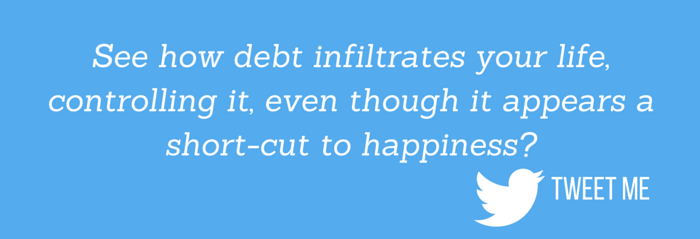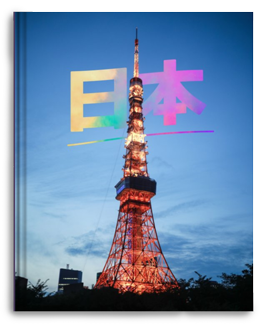
THE BLOG
5 Tempting Money Traps to Avoid: Simplifying Your Finances.
How many of us want to admit, out loud or to ourselves, that we are in debt? How many of us want to admit why and how we got there?
5 Tempting Money Traps To Avoid: Simplifying Your Finances.
I might only be 25 but I am no stranger to consumer debt.
I am no stranger to the feeling of being weighed down by financial burdens, and the accompanying guilt of knowing I more or less created them on my own.
But how many of us want to admit, out loud, or to ourselves, that we are in debt?
How many of us want to admit why and how we got there?
Some of us can't blame our debts on having too many bills to pay. Some of us just let things get a bit out of control in the pursuit of entertainment, escapism and the thrill of acquiring new things. I was doing the latter and that's how I got into debt.
You can read my full debt story, but here's a brief breakdown of my situation:
- 3 1/2 years ago I had credit cards nearly maxed out.
- I was 900 pound into an overdraft.
- I had a brand new car on finance.
- I was in a job I wasn't enjoying.
- I was headed for financial disaster.
I was stressed and miserable. I had left one job for another, hoping it would be a fresh start of some kind. It turned into a fresh nightmare.
I worked quite hard but didn't earn a lot of money for what I did. I didn't feel like I could repay my debts from the previous year and maintain a good standard of life on that income.
And eventually I just gave up on the job, and that made my situation even worse.
I had created my own stress and problems. I was the maker of my own misery.
To this day I blame no-one, not even my manager at that shitty job, for the fact I ended up unemployed, direction-less and with my savings going depleting by the day. I didn't feel poor however. I still believed in the 'free money' of credit cards and continued to add to my established debts.
I went out and spent money buying things I neither needed nor truly wanted.
But at some point I questioned, why should I have a wardrobe full of pretty things if I was actually being buried alive by them.
Having an abundance of stuff served as evidence of what my debts had funded, the happiness those things hadn't brought me, whilst I had very little in the bank to show for my months of enduring a crappy job or to even make ends meet.
It really seemed like an impossible situation with no way out.
It's time I don't remember fondly, but I do remember and share, because it taught me a lot about financial sense.
Travelling was a goal that drove me to pay off debts and save, but you don't need a big life change to motivate you.
You might be embarking on a new career path, or trying to save for a big holiday, but first you want to start afresh and be financially solvent.
You can seek freedom from the stress and weight of debt by avoiding these 5 tempting money traps.
Like what you're reading?
Join our email gang for bonus content and conversation!
CREDIT CARDS
I think people often use these to cover shortfalls during times of difficulty, but I also think people get these when they actually have a good income.
They feel safe in the belief that credit spending is a debt they can repay easily each month.
What we often forget is that rent, food and bills is often enough of a financial commitment, and can already create a lot of stress each month. Bringing a credit card into the mix may lead to unnecessary hardship at some point down the line.
Then again having a credit card that you aren't using may be an essential at some point in your life...
It's a game of 'What If's':
What if you lose your job?
What if you decide to change your career?
What if a major financial drain occurs, like a car repair or health issue?
If you already have high credit card debts, then you can't use that credit card to help you in the above scenarios.
If your income suddenly drops, your existing debts will still continue to rise. If you happened to get one of those credit cards with a deal of no interest for a certain period, eventually that period will end, and your debt could get out of control.
I only advise this cautious approach to credit because I myself was stung by improper credit card use. I lost my job, I had a health issue and I had bills to pay, so I really could have done without a large lingering debt.
OVERDRAFTS
Much like credit but more often used to cover everyday spending, I really believe these can be 100% avoided with a little forethought.
Do you manage to make your general expenses every month on your current income?
If not, is your overdraft your only option, or could you make some minor cutbacks here and there to avoid it?
Do you need subscriptions to all those film/music streaming sites?
Do you buy food off-brand and avoiding eating out?
Could you temporarily use a small part of your savings to cover an unexpected short-fall, replacing that money as and when you can?
I think people see an overdraft as a much lesser evil than a credit card. In which case they can be extremely helpful, especially the nearer to payday it gets. But they aren't a long-term solution because in continuously using one you are allowing yourself to live beyond your means and taking yourself further away from your main financial goals.
My overdraft was the pre-cursor to my credit-card so it really can be a gateway to more financial over-stretching.
CAR FINANCE
A few years ago, I wanted a brand new shiny car.
I decided that being a graduate, in a job, in my mid-20's, I deserved one.
I knew nothing about car finance and when I did find out about it I wasted no time in ordering a little fiat 500.
I loved that car, but I didn't love the fact I had to get rid of it a year later, since I was unemployed, starting a new business and no longer able to afford it.
I had to find someone who would buy it, but first I had to find money to pay off the finance and then wait out a car buyer.
I have learnt from this, and in the future, I will only ever purchase a car out-right with savings.
I know that my approach as a minimalist means I no longer value having the latest and most expensive thing, over just having something solid that works, but with car finance, you need to weigh up the value a brand new car brings versus the cost and commitment long-term.
Could you purchase a perfectly attractive and safe car with your cash savings, instead of paying a large amount of money each month in repayments to a car company?
Might it be more important to have something reliable and cheap, if it means you can live your life how you want to, without exorbitant financial stresses added to the equation?
If you haven't got the savings and see finance as the only way to overcome that, could you look at buying a cheaper car and borrowing money from a close family member?
Could you temporarily seek alternative means of transport, until you do have the savings to buy a car outright?
In my experience, car finance can work out, but only in ideal circumstances, where your lifestyle or priorities don't suddenly change.
I couldn't have foreseen that I'd go from gainfully employed, to unemployed, and then self-employed. If I hadn't taken out car finance, my sudden life changes wouldn't have mattered so much.
I would have had more freedom to quit the crappy job that paid the bills and chase my self-employment goals.
PAYDAY LOANS
We all believe we have a valid reason for taking out a loan, be it for a new car or holiday.
In recent years there's been the more worrying rise in the use of payday loans specifically, which often come with unbelievable APR rates. People can end up repaying 3 times what they originally borrowed.
Traditional loans come from our culture of wanting something we can't afford, immediately, without much time or effort to acquire it.
Payday loans are very much routed in that desperation people feel toward the end of the month, nearing payday, when they have a bill to pay that they either didn't budget for or didn't expect.
A loan might give you something quickly, but the debt it leaves you will not be so quick to deal with. It will take time to clear and whilst you are clearing it you will be financially limited and restricted.
A payday loan will be a slippery slope, not merely because of the steep APR rates but also because you might end up not repaying it as soon as your salary comes in. It very much feels like a credit card, e.g., free money.
You might delay repaying it because when your salary does arrive, you will feel a lot richer than you normally do, but its not reality; the reality is that you can't escape the payday loan, because it's just that, only designed to get you to payday and then be returned.
Fundamentally both types of loan will add to the stress you experience on a monthly basis, especially around more expensive times of the year, or if your income is unpredictable.
BUY NOW, PAY LATER
There are deals these days that allow you to put off paying for something, creating this kind of illusionary purgatory, where you get to enjoy something without financial repercussions.
But quite often these deals involve a fair bit of interest and high charges if you miss a payment.
You could end up even forgetting about these financial commitments due to the delayed repayments and that could lead to unplanned short-falls.
There are sometimes fee's attached to making full repayments early.
It seems like a really great option, but you need to look at the fine print, the figures and the negatives.
Can you source the thing you need 2nd hand, cheaper, or even for free?
Is the item you want worth the long repayment commitment?
If you are looking for a household item, look online first to try and find affordable options that don't require this kind of financial commitment.
The common thread that runs through all these financial traps is our culture of wanting things that are beyond affordability, but are made so thanks to credit deals etc.
Once upon a time people lived within their means, and would save for months on end to buy luxury items.
One argument against this is that life is short and we should try to enjoy it, whatever way we wish to, right away. Then again a life built around instant gratification and material obsession is a never-ending (and stressful) endeavour.
Our society is built around creating new wants and desires constantly, so you won't just get into debt once, for that one special object or life goal; it will probably happen again and again as new things and options appear in front of you regularly.
You could end up spending most of your life owing money. Thus you'd spend most of your life committed to creating the income to serve those debtors, not to serve your personal dreams and goals.
Thanks for reading!
Hannah here, one half of NomaderHowFar. I love reading, the beach, proper English chips, and a good cup of tea. But I mostly like to chat about minimalism, simplifying your life, the beauty of travel and sometimes I get a bit deep. Get to know us here!
Want More?!










